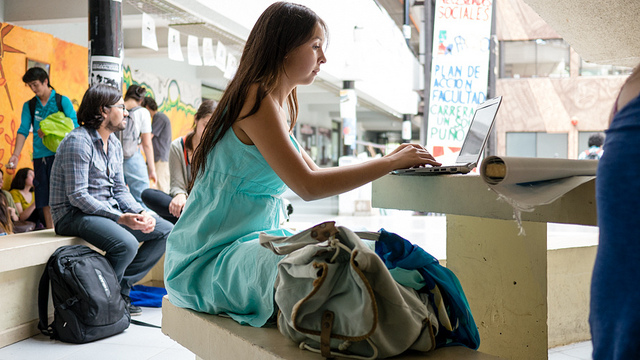Private education provider shortcomings
SEVERAL private education providers are failing international students with regards to student services, support facilities, and attendance marking. The Overseas Student Ombudsman has revealed a number of problems that are plaguing international students. Rowan Forster has more.
Private education providers are letting down international students and putting them at risk of deportation, the national Overseas Student Ombudsman has revealed.
International students are being burdened by sloppy student services and inconsistent attendance marking, with many providers allowing struggling students to fail without intervening.
According to the education code of practice, institutions are required to support and notify students at risk of failing. The ombudsman found that many education providers are failing to notify and aid their students at all, or are simply waiting until it is too late.
The Council of International Students Association President Thomson Ch’ng says that it is important not to generalise private education providers, as not all of them are at fault.
“On one hand, there are very good private education institutions in Australia, which offer great support services to international students. On the other hand, we also see private education institutions who are operating just purely for the reason for making profit out of international students.”
“It is important to make that distinction,” Mr Ch’ng said.
What actually causes international students to have poor attendance and slipping grades is another issue entirely. Ch’ng says it could be due to a range of different factors, such as a lack of student engagement by the providers, but also various external factors.
“Student engagement is a big determinant. If activities and such are held on campuses to keep students coming.”
“Cost of living is also an issue for international students. Australia, in a report last year by HSBC, was ranked as the most expensive international study destination for international students. So the cost of living is definitely applying a lot of additional pressure for them to work instead,” Mr Ch’ng said.
In some cases, student attendance records were also being marked incorrectly. Several providers were marking students absent for merely being late, or even on days when classes were not scheduled.
Poor attendance rates can lead to failed classes, and failed classes pose serious repercussions to international students. Students who fail risk being reported to the Department of Immigration and being deported from the country as failing constitutes a breach of the basic requirements in their student visa.
Overseas Ombudsman spokesperson Phil Mayne says that education providers are not taking advantage of students, rather, they are making accidental mistakes which are affecting international students.
“It is more a case of mistakes being made unintentionally, which we identify when we conduct an appeal. As stated above, we are letting education providers know about these mistakes so they can fix their processes and avoid making similar mistakes,” he said.
For many private education institutions, students are entirely on their own when they are struggling to pass or attend their studies.
Bigger university institutions counteract many of these issues through a number of different support services offered on campus. Groups such as student unions are often able to help with these issues before they escalate.
The Ombudsman’s report is based on 488 investigations of poor compliance in the private education sector, with the Ombudsman having to intercede 142 of these due to the extent of the neglect by institutions.

